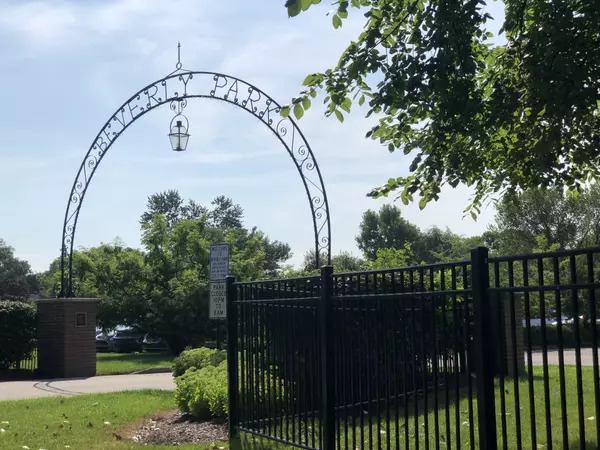

4 Ways to Avoid Probate Court for Real Estate Sales in Michigan
Losing a loved one is already a deeply emotional experience, and the added stress of managing their estate can make it even more challenging. In Michigan, families often face the complexities of probate court, particularly with real estate matters. Probate can be time-consuming, costly, and stressful, placing an additional burden on grieving heirs. Jeff Higgins, a probate real estate expert, emphasizes the importance of proper estate planning to spare families from the probate process whenever possible. This blog outlines four effective strategies to avoid probate court and ensure a smoother transition of property ownership. Understanding Probate and Its Implications Before diving into the strategies, it’s important to understand what probate is and avoid probate through proper estate planning. Probate is the legal process through which a deceased person’s estate is distributed to heirs and beneficiaries. This process is supervised by a probate court and involves validating the will (if one exists), paying off debts and taxes, and distributing the remaining assets. In Michigan, there are several scenarios that typically require an estate to be administered in probate court: 1. No Will: If a loved one passed away without a will, their assets, including real estate, will be distributed according to Michigan probate law. 2. Will but No Living Trust: If a loved one had a will but no living trust or comprehensive estate plan, probate court will still be involved. 3. Unfunded Living Trust: Even if a living trust exists, any property not placed into the trust may still require probate. 4. Contested Estate: Disputes over lifetime gifts, beneficiary designations, wills, or trusts can lead to probate court involvement. Even when there are no disputes, the probate process can be drawn-out and stressful for grieving families. Probate is also a matter of public record, which means estate matters are harder to keep private. To avoid these situations, it’s crucial to implement strategies that keep real estate out of probate. We highly recommend seeking the advice of an expert estate planning attorney to make sure your heirs don’t get stuck with the burden of probate court. The Myth of the Will Avoiding Probate Many people are under the false impression that if they have a will that they will probate. The reality is that even with a will the probate court will still have to determine if the will is valid. Part of the probate process involves submitting the will to the court to be validated and executed according to the decedent’s wishes. A will is a critical component of an estate plan, but it does not bypass probate. Instead, it serves as a guide for how the decedent's assets should be distributed. While having a will can streamline the probate process by providing clear instructions, it does not eliminate the need for probate altogether. A will should be used with other estate planning tools if your goal is to avoid probate. There are other estate planning tools and strategies that can effectively avoid probate, which are outlined below. 1. Establish a Living Trust One of the most effective ways to avoid probate for real estate is to establish a living trust. A living trust is a legal document that places assets, including real estate, into a trust during an individual's lifetime. Here’s how it works: - Creation: The trust is created by the property owner (the grantor) and managed by a trustee for the benefit of the beneficiaries. - Transfer of Property: The property owner transfers the title of the real estate into the trust. This means the trust becomes the owner of the property, not the individual. - Management: The trustee manages the property according to the terms of the trust, and upon the grantor’s death, the property is distributed to the beneficiaries without the need for probate. By placing real estate into a living trust, the property can be transferred to the beneficiaries directly, bypassing probate court entirely. This not only speeds up the process but also keeps the details of the estate private and reduces legal fees. We have had many estate planning professionals share with us that a well-done living trust is the best way to avoid probate. 2. Joint Ownership with Rights of Survivorship Another method to avoid probate is through joint ownership with rights of survivorship but this method can get complicated and we have seen homeowners try this tactic only to muddy their estate planning and create a problem for their adult children. Joint ownership with rights of survivorship arrangement allows property to pass directly to the surviving owner(s) upon the death of one owner. There are a few types of joint ownership to consider: - Joint Tenancy with Right of Survivorship: This is a common form of joint ownership where two or more people own a property equally. Upon the death of one owner, their share automatically transfers to the surviving owner(s) without the need for probate. - Tenancy by the Entirety: This form of joint ownership is available only to married couples in Michigan. It provides similar benefits to joint tenancy with right of survivorship, ensuring that the property passes directly to the surviving spouse without probate. Joint ownership with rights of survivorship is a straightforward way to ensure that real estate transfers seamlessly upon death. However, it’s important to note that this method should be used thoughtfully, as it can have implications for taxes and the overall estate plan. When someone else is made a joint tenant, they have an immediate ownership interest in the property. This means that the property cannot be sold or mortgaged without their consent, and it may be vulnerable to their creditors. We have seen well meaning homeowners add their adult children to ownership of the home only to complicate their estate planning. 3. Designate Beneficiaries Designating beneficiaries on your financial accounts, utilizing Payable-on-Death (POD) and Transfer-on-Death (TOD) accounts can be effective for avoiding probate. These accounts allow you to name beneficiaries who will receive the assets directly upon your death, bypassing probate court. This tactic is super easy to do and you just simply have to designate your beneficiaries. - Payable-on-Death (POD) Accounts: These accounts are typically used for bank accounts. The account holder designates a beneficiary who will receive the funds in the account upon the holder’s death. The beneficiary has no rights to the funds while the account holder is alive. - Transfer-on-Death (TOD) Accounts: Similar to POD accounts, TOD accounts can be used for securities, such as stocks and other similar investments. The account holder names a beneficiary who will automatically inherit the securities upon the holder’s death. While these accounts are not directly related to real estate, they can play a crucial role in an overall estate plan, ensuring that other assets are transferred smoothly and reducing the overall complexity of the probate process. 4. Lady Bird Deeds A Lady Bird deed, also known as an enhanced life estate deed, is another useful tool for avoiding probate in Michigan. Not all states have Lady Bird deeds and we have seen many homeowners combine a will and a Lady Bird deed to ensure their house or real estate will pass smoothly to their heirs. The Lady Bird deed allows you as the property owner to retain control over the property during their lifetime while designating a beneficiary to inherit the property upon their death. Here’s how it works: - Retained Control: The property owner retains the right to use, sell, or mortgage the property during their lifetime without the beneficiary’s consent. - Automatic Transfer: Upon the property owner’s death, the property automatically transfers to the designated beneficiary without the need for probate. - Medicaid Planning: Lady Bird deeds can also be beneficial for Medicaid planning, as the property is not considered a countable asset for Medicaid eligibility purposes and is protected from estate recovery. Lady Bird deeds offer flexibility and control, making them a very attractive option for property owners looking to avoid probate while maintaining control over their property. If our clients do not have a living trust, we see many homeowners use a will in conjunction with a Lady Bird deed as an estate planning strategy. Conclusion Planning ahead and proper estate planning is crucial to avoid the time, expense, and stress of probate court. While your heirs are grieving, you do not want to burden them with forcing them to navigate the probate court process. By establishing a living trust, setting up joint ownership with rights of survivorship, designating beneficiaries, and considering Lady Bird deeds, families can ensure a smoother transition of property ownership and provide peace of mind for their loved ones. For assistance with probate real estate or questions about these strategies, visit higginspartners.com/probate-realestate. Jeff Higgins and his team specialize in serving the five-county Metropolitan Detroit area of Oakland, Macomb, Livingston, Washtenaw, and Wayne. Through their extensive partner network, they service the entire state of Michigan, providing expert guidance and support during this challenging time. For personalized advice and professional assistance, contact Jeff Higgins and his team today. Let them help you navigate the complexities of probate real estate with compassion and expertise. Disclaimer Jeff Higgins is a professional licensed real estate agent in the state of Michigan. The purpose of this blog is to share information from the perspective of a real estate professional in the State of Michigan. This blog should not be construed as legal advice or used as legal advice in any way. Please consult a qualified probate attorney for legal questions surrounding the probate process. If you do not have a probate attorney, Jeff Higgins and his team are happy to connect you with one of their preferred probate attorneys. Please email Jeff Higgins at jeff@higginspartners.com for more information.
Read More

Beverly Hills 48025: The Gem of Metro Detroit
Welcome to Beverly Hills! Nestled in Oakland County, Beverly Hills, Michigan 48025, is a thriving community known for its picturesque landscapes, excellent schools, and vibrant local culture. As a highly sought-after area, Beverly Hills offers an ideal environment for families, professionals, and retirees alike. In this blog, we'll delve into the real estate market of Beverly Hills, providing valuable insights for both buyers and sellers. Community Overview Beverly Hills boasts a population of approximately 10,000 residents. The village is home to around 4,200 housing units, ranging from charming mid-century homes to luxurious new constructions. This mix of housing options attracts a diverse group of residents who appreciate the community's suburban feel and proximity to the amenities of nearby Birmingham and Detroit. Real Estate Market Insights On average, Beverly Hills sees approximately 200 housing units sold annually. Here is a breakdown by year: 2023: 199 2022: 190 2021: 242 2020: 231 2019: 225 2018: 196 This steady turnover indicates a healthy real estate market with a consistent demand for homes. The current real estate market conditions are favorable for both buyers and sellers, with several key metrics pointing towards a robust market. While the market is dynamic, low inventory of available homes for sale continues to push home prices up. What does this mean for home buyers? For buyers of real estate in Beverly Hills, MI, home buyers need to move quickly and be decisive. As a buyer you may need to buy your new home in Beverly Hills first before you sell your current home; homes sell too quickly in Beverly Hills for you to wait. We look to months supply of inventory to determine if the housing market is a seller’s market or a buyer’s market. If the months of supply is greater than 3 months, we term it a buyer’s market and under 3 months of supply, we label it as a seller’s market. (Note: many real estate experts have traditionally used 6 months of supply instead of 3 months. We haven’t seen anything close to six (6) months supply in decades so we feel the above definition is more fitting for today’s world.) After looking at the data, the current housing market in Beverly Hills 48025 is a seller’s market with approximately 10 days of supply for condos and 30 days for houses. Said differently, ten days from now we will have a shortage of condos and we will see that shortage of houses for sale in Beverly Hills in about 10 days. The ten (10) days months supply is nearly the lowest recorded figure since 2014 and the same came be said of the 1 month supply of houses in Beverly Hills. If you are a home buyer active in the market in Beverly Hills, you need to move quickly and be decisive. This is not a market you can put in a contingent offer, meaning the offer you make on the new home in Beverly Hills is contingent on the sale of your current home. You need dry powder so to speak to move quickly in this market. What does this low inventory market mean for sellers? The obvious is it is a good time to sell. I always say you can’t time the market – and you really can’t. And selling is typically a personal decision and often triggered by a life event, such as your family getting smaller or larger or maybe you are downsizing or maybe you retired. Regardless, the decision to sell your home is a personal decision. However, the market dynamics in Beverly Hills are pointing that it is a good time to sell. You have a great window of opportunity today to sell but we do see some headwinds that prices are starting to soften a bit. Now make no mistake – we do not see the inventory situation meaning the number of houses or condos for sale in Beverly Hills changing any time soon and expect the seller’s market in Beverly Hills 48025 to continue into next year and perhaps into 2026. But what about the softening I mentioned? The average home price in Beverly Hills, Michigan is $550,991, which is up 6.4% versus May 2023. The peak of the market was in December 2022 and the average home price was $583,357. The average home price is down slightly since December 2022. High interest rates and the low inventory situation may lead to home buyer fatigue and we may see home buyers drop out of the market which would create downward pressure on home price in Beverly Hills. With any of our private clients that own homes in Beverly Hills that are thinking about selling in the next 24 months, we are encouraging them to reconsider and sell in the next 6 months if their situation allows it. Prices are near their all-time high and we don’t want any Beverly Hills homeowner to miss this window of opportunity to maximize the sales price of their home and unlock their home equity. Monthly Market Report: What’s Happening Now? - Days on Market (DOM): The average days on market (DOM) for homes in Beverly Hills is currently 18 days. This is a decrease from last year's average of 28 days, indicating that homes are selling faster. This is an overall average for Beverly Hills with higher price points taking longer and homes that are move-in ready at lower price points are selling in days. Overall, it depends on the price point, location within Beverly Hills, the condition of the home and other factors to determine days on market (DOM) and overall we are saying approximately 30 days is a good general number. - Average Sales Price: The average sales price for a home in Beverly Hills is now $555,991. This represents a 6.4% increase from the previous year. As stated earlier, this is down from the peak of $583,557 in December 2022. These statistics suggest that Beverly Hills remains a desirable location with a competitive housing market. Homes are selling quickly, and prices are on the rise, benefiting sellers while still presenting opportunities for buyers. Market Data Analysis To provide a detailed market analysis, we have studied the data on properties that are Coming Soon, Active, and Sold in Beverly Hills over the past 180 days. Below are some key insights derived from this data: For Beverly Hills Home Buyers 1. Affordable Luxury: Beverly Hills offers a range of housing options, including affordable luxury homes. With an average sales price in the mid $500's, buyers can find high-quality homes at competitive prices compared to nearby affluent areas including Birmingham where the average sale price is over $825,000. 2. Quick Turnover: With an average DOM of 30 days, homes in Beverly Hills sell quickly. Buyers need to act fast and be prepared to make competitive offers. 3. Rising Home Values: The 6.4% increase in average sales price over the past year highlights the potential for strong return on investment for buyers, making Beverly Hills a wise choice for those looking to build equity. 4. Prime Location: Beverly Hills' proximity to major highways and thoroughfares makes commuting easy, whether you're heading to downtown Detroit or exploring other parts of Michigan. Beverly Hills is perfectly situated whether you want to head to downtown Birmingham or need to be close to Corewell Beaumont. (Author's note: Still getting used to saying Corewell. It will be forever Beaumont to me.) For Beverly Hills Home Sellers 1. Seller's Market: The current market conditions, characterized by rising prices and decreased DOM, create a favorable environment for sellers. Homes are likely to attract multiple offers, driving up final sale prices. 2. High Demand: The consistent demand for homes in Beverly Hills means that sellers can expect their properties to garner significant interest, especially if priced and marketed effectively. 3. Community Appeal: Highlighting the village’s excellent schools, green spaces, and community spirit can be powerful selling points. Emphasizing these aspects in marketing materials can help attract motivated buyers. 4. Exclusive Offerings: Due to high buyer demand, some homes sell even before hitting the market. Working with an experienced real estate agent can ensure your home reaches potential buyers through exclusive networks. Property Data Insights Based on the latest data from the past 180 days, here are some additional insights: - Coming Soon Listings: There are several properties poised to enter the market soon, ranging from $350,000 to $600,000. These upcoming listings indicate a healthy pipeline of new inventory despite being in a low inventory of available homes market. - Active Listings: Current active listings show a diverse range of homes available, with prices spanning from $300,000 to over $1 million. This variety caters to different buyer segments, from first-time homebuyers to those seeking luxury residences. In my opinion, the diverse range of home price and offerings drives this dynamic market leading to an overall increase in home prices in Beverly Hills. Variety is the spice of life and the secret sauce of why the Beverly Hills Michigan real estate market is so strong. - Sold Listings: Recent sales data reveals that homes in Beverly Hills have been selling close to their asking prices, further emphasizing the competitive nature of the market. Summary Beverly Hills, Michigan, continues to be a desirable community with a strong real estate market. Whether you're looking to buy or sell, understanding the current market trends and leveraging the unique attributes of Beverly Hills can help you make informed decisions. As an experienced real estate professional specializing in Beverly Hills, I am here to assist you with all your real estate needs. From navigating the buying process as your buyer's agent in Beverly Hills to effectively marketing your home for sale as a listing agent in Beverly Hills, my goal is to provide you with expert guidance and support and unparalleled personal service. Feel free to reach out if you have any questions or need personalized advice. Interested in finding out what your Beverly Hills home is worth? Don’t rely on an internet estimate. Get our Equity Review Report and I will tell you what your home is worth in today’s market and in turn how much equity you have in your home. Contact Information Jeff Higgins Real Estate Expert Higgins Partners powered by Real Phone: (248) 233-6165 Email: jeff@higginspartners.com Website: HigginsPartners.com
Read More

Michigan Probate Real Estate: What Are Letters of Authority?
When you lose a loved one, you are grieving, and this can be a very stressful time. Unfortunately, you may have to navigate the probate process during this difficult time, which can be stressful, time-consuming, and emotionally draining. I frequently work with families who find themselves in the difficult situation of having to sell their loved one’s home or transfer the property to the beneficiary or beneficiaries listed in the will. However, the family, executor, or personal representative cannot list the house for sale or transfer the property to the beneficiary without a Letter of Authority. (Note: for the purposes of this blog, we will use executor and personal representative interchangeably.) While you could list the property for sale with a real estate agent, a title company will not let you transfer or sell the house without a Letter of Authority giving you the right to do so. A title company will want to ensure that they’re working with the person who is legally allowed to represent the estate and not someone who only claims that they’re allowed to represent the estate. What is a Letter of Authority? A Letter of Authority is a crucial document in the Michigan probate process. Here’s a closer look at what it entails and how it functions: 1. A Letter Of Authority Makes You The Legal Representative Of An Estate: A Letter of Authority is a legal document that is signed by the probate court where your loved one was living at the time of their death. It designates the person who will be the personal representative of your loved one’s estate. The personal representative is able to control and manage the money, property, and assets that were owned by the person who passed away. The personal representative must follow the instructions in the will (or the instructions as outlined by Michigan probate law if there was no will). As the personal representative, you are able to sign for and manage assets on behalf of the estate, including selling the house or property of your deceased loved one. 2. It's A Standard Part of The Probate Process: The Michigan probate process is the legal process that takes place after a person has passed away. It’s used to properly distribute their money, property, real estate, and other assets to the heirs, beneficiaries, and/or creditors. The Letter of Authority is a standard part of this process and ensures that the person managing the estate has the legal right to do so. 3. How To Get Your Letter of Authority: To obtain a Letter of Authority, you must open a probate estate and petition the probate court to become the estate’s personal representative. This process involves several steps: - Filing a Petition: You must file a petition with the probate court in the county where the deceased lived. This petition formally requests the court to appoint you as the personal representative. - Notifying Heirs and Beneficiaries: Once the petition is filed, you must notify all heirs and beneficiaries that a probate estate has been opened. This notification ensures transparency and allows anyone with objections to come forward. - Court Hearing: In some cases, the court may hold a hearing to determine if you are suitable to act as the personal representative. If there are no objections and the court finds you suitable, you will be appointed as the personal representative. - Issuance of Letter of Authority: After the court appoints you, you will be issued your Letter of Authority. This document identifies you to third parties as the legal representative authorized to manage the estate. Why is the Letter of Authority Important? The Letter of Authority serves several critical functions in the probate process: - Legal Validation: It provides legal validation that you are the authorized person to handle the deceased's affairs, ensuring that all actions you take on behalf of the estate are legitimate.- Protection Against Fraud: It protects against fraud by ensuring that only a court-appointed individual can manage and distribute the estate's assets.- Facilitates Transactions: It facilitates transactions such as selling real estate, accessing bank accounts, and paying off debts by providing proof of your authority to financial institutions and other entities. A Probate Lawyer Can Speed Up The Process While it is not legally required, we highly recommend that you seek the services of an attorney who specializes in probate to help you navigate the probate process. A well-qualified attorney can help expedite the process and ensure that everything is handled correctly. Here’s how a probate lawyer can assist: - Expert Guidance: An experienced probate attorney can provide expert guidance on the complex legal procedures involved in probate, helping you avoid common pitfalls and delays.- Document Preparation: A probate attorney can assist in preparing and filing all necessary documents, ensuring that everything is in order and submitted on time.- Court Representation: If there are any disputes or complications, a probate attorney can represent you in court, advocating on your behalf and protecting your interests.- Asset Management: A probate attorney can help manage and protect the estate's assets, ensuring that everything is accounted for and distributed according to the will or Michigan law. Why Choose Higgins Partners for Probate Real Estate? At Higgins Partners, we specialize in helping families navigate the probate process and sell their loved one’s properties. Our compassionate perspective, combined with our years of experience, helps make this very difficult time less stressful. Here’s what sets us apart: - Compassionate Support: We understand that dealing with the loss of a loved one is challenging. Our team provides compassionate support to help you through this difficult time.- Expertise in Probate Real Estate: With our extensive experience in probate real estate, we know the ins and outs of the process and can handle all aspects of selling the property, from listing to closing.- Network of Professionals: We have a network of trusted probate attorneys, title companies, contractors, appraisers, staging companies, cleansing companies estate sale firms, and other professionals who can assist with various aspects of the probate process, ensuring a smooth and efficient experience. Final Thoughts. Navigating the probate process can be overwhelming, but understanding key documents like the Letter of Authority can help make the process more manageable. At Higgins Partners, we are here to provide the support and expertise you need to navigate this challenging time and ensure that your loved one’s estate is handled with care and professionalism. If you have a question about the probate process or would like us to put you in touch with one of our preferred probate attorneys, please call Jeff Higgins at (248) 233-6165 or send an email to jeff@higginspartners.com. For more information on probate, visit https://higginspartners.com/probate, a great resource that we update regularly. Jeff Higgins of Higgins Partners currently serves the Metro Detroit and Ann Arbor area, including the five-county area of Oakland, Macomb, Wayne, Livingston, and Washtenaw. If your house, condo or property is outside of Metro Detroit and you need a listing agent, please let us know. We can put you in touch with one of our network partners who understands the probate real estate process. *Note: Nothing in this blog shall be construed as legal advice. We recommend consulting a probate attorney for all legal matters. The point of this blog is to share some information from our perspective as a professional licensed real estate agent in the state of Michigan.
Read More

Discover Corktown: Detroit's Hottest Real Estate Investment Hub
Welcome to our weekly blog, where we dive deep into the vibrant neighborhoods of Detroit, showcasing the best real estate investment opportunities and solidifying our reputation as the go-to experts for real estate investing in Detroit. This week, we’re exploring Corktown, Detroit’s oldest neighborhood, which has transformed into one of the Detroit’s most dynamic and promising areas for real estate investments. With its rich history, ongoing developments, and a promising future, Corktown stands out as a prime location for real estate investors looking in Detroit. Let's delve into why Corktown is a hot spot for real estate investing. The Rich History of Corktown Corktown, named after County Cork in Ireland, is Detroit's oldest neighborhood, established in the 1830s. Its historical significance is evident in its Victorian-style homes, charming brick streets, and iconic landmarks like the Michigan Central Station. For decades, Corktown has been a resilient community, surviving numerous economic and social changes while maintaining its unique character and close-knit community feel. The Transformation of Corktown Over the past three decades, Corktown has undergone a remarkable transformation. The closure of Michigan Central Station in 1988 and Tiger Stadium in 1998 marked a period of decline. However, the community's unwavering spirit and commitment to revitalization have spurred a renaissance. Today, Corktown is a thriving hub of new housing developments, a flourishing small business landscape, and a growing center for startups and venture capital. The reopening of the Michigan Central Station by Ford Motor Company, following an intensive six-year restoration, symbolizes Corktown’s tremendous growth and potential. Why Corktown is a Hotspot for Real Estate Investing 1. Historic Charm Meets Modern Development: Corktown's unique blend of historic charm and modern development makes it an attractive destination for real estate investors in Detroit. The neighborhood’s Victorian-era homes, coupled with contemporary housing developments, offer diverse investment opportunities. 2. Robust Economic Growth: Ford's $950 million investment in Detroit’s Michigan Central Station and the surrounding area around Corktown has sparked nearly $500 million in private investments. These developments are not only revitalizing the neighborhood but also attracting new businesses, residents, and investors. 3. Increasing Property Values: Property values in Corktown have been on the rise. According to the Rocket Homes Corktown Housing Market Report, the median sale price of a three-bedroom house increased by 21.3% from last year, reaching $620,000. This trend indicates a healthy and growing real estate market and the biggest increase in Detroit. 4. Strategic Location: Corktown's location, as the gateway to Southwest Detroit, provides easy access to Downtown Detroit and major freeways. This strategic position enhances its appeal to both residential and commercial real estate investors. 5. Community and Culture: The community's efforts to maintain and improve the neighborhood, alongside significant developments, ensure Corktown remains a vibrant and desirable place to live and work and one of Detroit’s best neighborhoods. The Impact of Ford's Investment Ford Motor Company's decision to restore the Michigan Central Station and develop the surrounding area is a game-changer for Corktown. The restoration project has not only preserved a historic landmark but also injected new life into the neighborhood. The station, which had been closed for 35 years, is now set to house some 1,000 high-tech automotive workers by the end of the year, with thousands more expected in the coming years. This influx of professionals will undoubtedly drive demand for housing, both rental and for-sale properties. The surrounding district, including the renovated Book Depository building now housing Newlab, is expected to become a bustling hub for innovation and technology. This transformation will attract more businesses, startups, and investors, further boosting the local economy and real estate market. Opportunities and Challenges While Corktown’s growth presents numerous opportunities for real estate investors, it also comes with challenges. Rising property values and rents can make it difficult for long-time residents and small business owners to stay Corktown. However, these challenges also highlight the potential for strategic investments that can balance profitability with community sustainability. Maybe the growth of Corktown will spillover into other adjacent Detroit neighborhoods including Mexicantown. With the anticipated density of workers in the Michigan Central district, demand for housing is expected to accelerate in Corktown and other neighboring areas in Detroit. The vibrant neighborhood, with its numerous eating, drinking, and music venues, already attracts many. The opening of Michigan Central and the surrounding district only heightens the appeal, making Corktown a prime location for those looking to live close to their workplace. However, the supply of for-sale properties remains low. With roughly 10 condos in the neighborhood on the market and only a couple of single-family homes, the incoming wave of Ford workers who wish to live within walking distance of their office will find minimal options. This limited inventory suggests a competitive market, making it a seller's market and an excellent time for investors to consider rental properties. Investing Beyond Corktown While Corktown stands out as a prime real estate investment location, Detroit offers other neighborhoods with great potential for real estate investments. Here are a few worth exploring: 1. Midtown: Anchored by Wayne State University and known for its cultural institutions and vibrant arts scene, Midtown has seen significant development and rising property values, making it an attractive option for real estate investors seeking opportunities in Detroit. 2. Downtown: Detroit's downtown area continues to grow with new businesses, residential developments, and entertainment options. Over the last several years, Downtown Detroit has been transformed and this real estate transformation was from Dan Gilbert investing approximately $7.0 billion dollars. The central location of Downtown Detroit and ongoing revitalization efforts make it a hotspot for real estate investments. 3. Eastern Market: Famous for its historic market and food scene, Eastern Market in Detroit is undergoing transformation with new residential and commercial developments, offering diverse real estate investment opportunities. 4. Brush Park: This historic neighborhood north of Downtown Detroit and south of Midtown off Woodward Avenue is experiencing a resurgence with the renovation of historic homes and new mixed-use developments. Its proximity to downtown and Midtown enhances its real estate investment appeal. The outlook for Midtown Detroit is super positive and we expect the growth of Midtown to continue with the growth of the area and the growth of Wayne State University. 5. New Center: With major developments like the Henry Ford Health System expansion and the Motown Museum renovation, New Center is becoming a focal point for real estate investors looking for growth opportunities in the City of Detroit. Conclusion Corktown's blend of historic charm, robust economic growth, and strategic location make it a standout neighborhood for real estate investing in Detroit. The community's commitment to revitalization, coupled with significant investments like Ford's restoration of the Michigan Central Station, ensures Corktown's bright future. However, it's essential to recognize the challenges of rising property values and limited inventory, which highlight the need for strategic investments. Detroit offers other promising neighborhoods for real estate investments, each with its unique opportunities and potential for growth. As a real estate investor and agent, I have the expertise and local knowledge to guide you through the best investment options in the City of Detroit. Are you interested in real estate investing in Detroit? Whether you're a seasoned investor or just starting, the City of Detroit offers unique opportunities that can yield significant returns. Call me today at (248) 233-6165 or email me at jeff@higginspartners.com to explore how you can become part of Detroit’s exciting real estate market. Jeff Higgins Higgins Partners | Real Broker, LLC Phone: (248) 233-6165 Email: jeff@higginspartners.com Stay tuned for next week's blog, where we will explore another vibrant neighborhood in Detroit, offering more insights and opportunities for real estate investing.
Read More
Categories
Recent Posts










